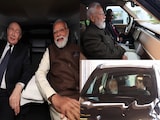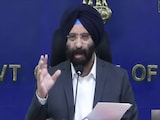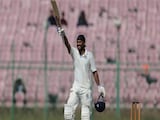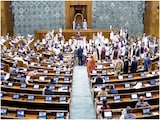- Suspension of free movement, Internet abuse of power: Supreme Court
- The government had ended Jammu and Kashmir's special status on August 5
- Several political leaders have been in detention in Kashmir
Internet access is part of the fundamental right to freedom of speech, the Supreme Court said today, ordering the Jammu and Kashmir administration to review within one week all restrictive orders in place since the government ended special status to the former state in August.
"Suspension of free movement, Internet and basic freedoms cannot be an arbitrary exercise of power," said the Supreme Court, asserting that "mere expression of dissent or disagreement against a government decision cannot be reason for Internet suspension."
All restrictive orders in Jammu and Kashmir over the past five months following the scrapping of Article 370 are to be made public so they can be challenged legally, the the three-judge bench said.
"Suspending internet should be reviewed forthwith. Such suspension can only be for a limited time period and is subject to judicial review," the Supreme Court said on petitions challenging the restrictions in Jammu and Kashmir since August 5, when the government decided to withdraw special status and also bifurcate the state to two union territories.
The court said freedom of speech and expression through the internet is an integral part of Article 19 (1)(A) of the constitution," asking the government to consider restoring government websites and e-facilities where internet abuse is minimal. A complete ban on internet must be considered by the state only as an extraordinary measure, said the court.
Any restrictions on such fundamental rights should be inclusive of the test of proportionality, it said.
As part of the sweeping curbs in movement and communication, several political leaders, including three former chief ministers, have been in detention in Kashmir.
Justice NV Ramanna, who read out the judgement, began by quoting the famous opening lines of Charles Dickens' A Tale of Two Cities: "It was the best of times, it was the worst of times, it was the age of wisdom, it was the age of foolishness..."
The court criticized the repeated use of Section 144, a colonial-era rule to ban large gatherings, in the former state that was bifurcated into two union territories as part of the government's decision to scrap Article 370. "It can't be used as a tool to oppress difference of opinion," the court said.
"Our limited concern is to find a balance regarding security and liberty of people. We only here to ensure citizens are provided their rights. We will not delve into the political intent behind the orders given," said Justice Ramana.
"Orders passed under Section 144 have direct consequences upon the fundamental rights of the public in general. Such a power, if used in a casual and cavalier manner, would result in severe illegality."
The centre had justified the restrictions and said that due to the preventive steps, not a single life was lost and not a single bullet was fired.
Kashmir has been through the longest internet shutdown in any democracy. Kashmir's chamber of commerce says the Internet shutdown cost the economy over 2.6 billion dollars and over 1 lakh people lost their jobs.
Besides Congress leader Ghulam Nabi Azad, the top court had heard the petitions filed by Anuradha Bhasin, Executive Editor of Kashmir Times, and others questioning the restrictions in Kashmir.















